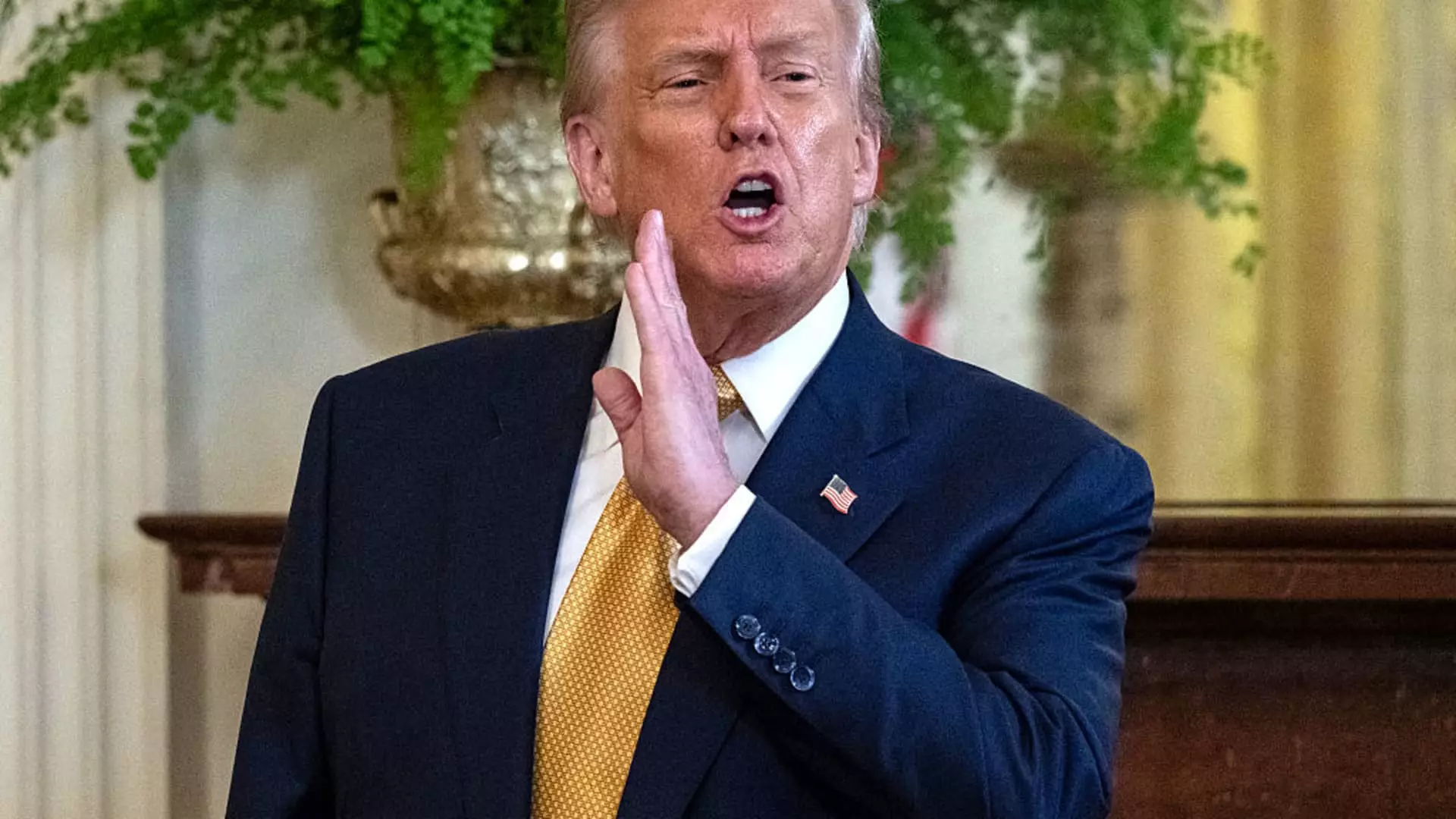In recent weeks, the rhetoric surrounding U.S. trade policy has grown increasingly volatile. President Donald Trump’s aggressive push to renegotiate and redefine international trade agreements reveals a fundamental miscalculation about the nature of global economic cooperation. While the administration touts new frameworks—such as the deal with Japan—as signs of strength, these are ultimately short-term tactical wins that undermine longer-term stability. The underlying assumption that tariffs and threats can serve as leverage is deeply flawed, suggesting a worldview that prioritizes unilateral dominance over mutual benefit. Such a perspective dismisses the complexities of global supply chains and the interdependence that characterizes today’s economy.
The U.S.-Japan agreement, for all its superficial success, is not a definitive victory. It signals a de facto reality: reliance on tariffs and protectionism may temporarily rally domestic sectors but compromise broader economic health. The reduction of auto tariffs from 25% to 15%, while welcome on the surface, doesn’t address the deeper issues of market access, intellectual property protections, or the nuanced needs of each economy. Furthermore, the optimism surrounding this deal disregards the fragile state of transpacific trade relations—relations that could unravel with any sudden policy reversal or diplomatic misstep. The illusion that such agreements can lead to sustainable growth without addressing structural deficiencies is both naive and dangerous.
Europe’s Strategic Dilemma: Navigating Between US and China in a Divided World
Europe finds itself stuck in an increasingly precarious position. The EU’s efforts to negotiate a trade deal with the United States are hampered by a volatile political landscape driven by America’s protectionist policies. With tariffs looming on the horizon and retaliatory measures already queued, Europe faces the paradox of wanting to preserve its economic interests while being dragged into a geopolitical tug-of-war between the U.S. and China. European leaders, including Ursula von der Leyen and Antonio Costa, are traveling to Asia, ostensibly to diversify diplomatic and economic partnerships. This pivot underscores Europe’s awareness that the global arena is becoming more fragmented and less predictable.
However, the EU’s diplomatic endeavors seem reactive rather than strategic. Their engagement with China and Japan suggests an attempt to shore up alliances that can cushion the blow of U.S. tariffs and protectionism. Yet, these moves also reveal an underlying vulnerability: the continent’s inability to forge a unified stance amidst conflicting pressures. Will Europe stand firm in its pursuit of fair trade and multilateralism, or will it capitulate to the pressures of bilateral negotiations and the possibly short-sighted gains of economic nationalism? The EU’s nuanced position reflects its desire to balance economic interests with political legitimacy, but it risks being marginalized if it fails to assert a clear, unified voice on the global stage.
The Implication of Protectionism on Global Stability and Future Prosperity
At its core, the Trump administration’s trade strategy exposes a fundamental flaw: an underestimation of the interconnectedness that defines the modern world economy. Tariffs, sanctions, and aggressive negotiations might deliver immediate tactical advantages but threaten to erode the foundations of international stability. The ensuing uncertainty fosters a climate of suspicion and fear, discouraging long-term investment and collaboration.
Moreover, this approach neglects the vital role of multilateral institutions and agreements in maintaining a balanced global order. The push for bilateral deals and tariffs disregards the importance of collective action on issues like climate change, digital regulation, and supply chain resilience. Short-term political gains obscure the fact that sustainable growth depends on cooperation, not confrontation. Democrats and centrist liberals, while often criticized as too cautious or incrementalist, understand that true progress arises from dialogue and mutual respect. Their vision is one of strategic diplomacy that fosters collaboration rather than isolates nations within a cycle of retaliation and distrust.
The rise of protectionism under Trump threatens to reinforce global inequalities as well. While some sectors may temporarily benefit from tariffs, the broader repercussions include higher consumer costs, reduced innovation, and weakened international institutions. Europe’s cautious engagement and search for balanced partnerships reflect a recognition that neither isolation nor aggressive tariffs are pathways to a resilient, equitable global economy. It is imperative for the West to resist the siren call of nationalist protectionism and instead reinforce international cooperation as the only sustainable route forward.


Leave a Reply